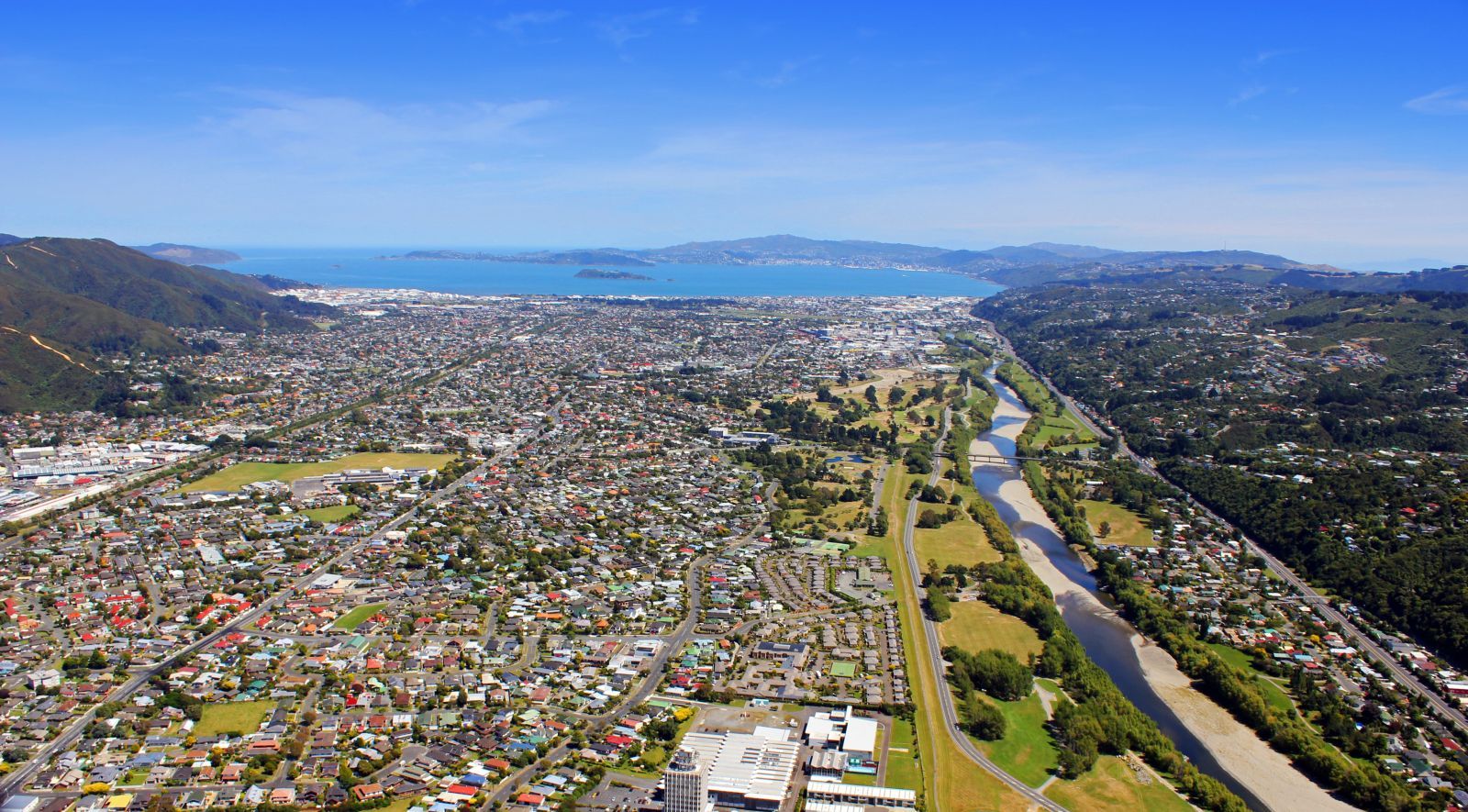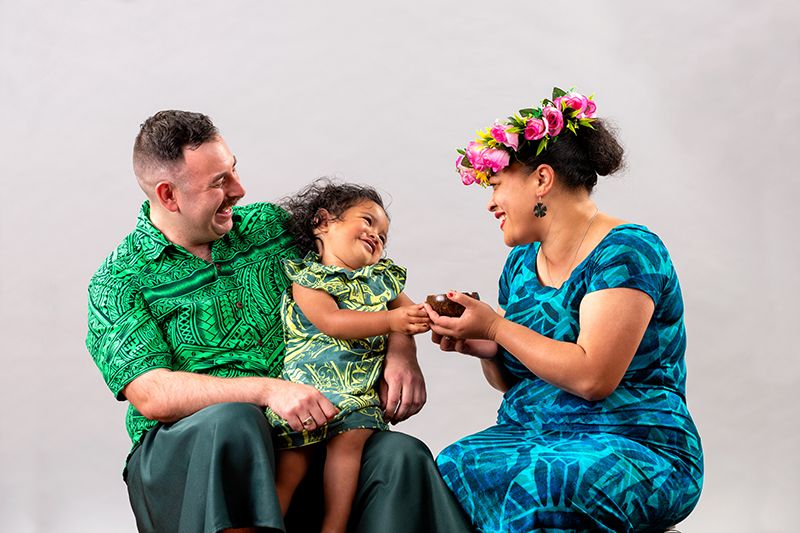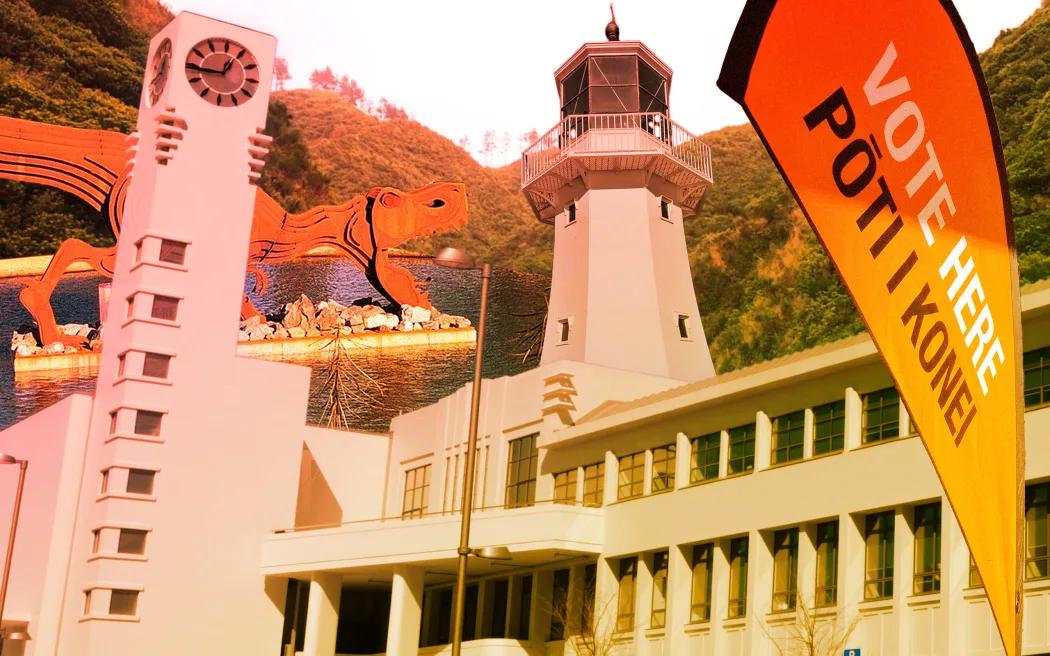

Lower Hutt council candidates Semi Kuresa and Mele Tonga-Grant are among the few Pasifika standing in this year’s election.
Photo/Naylor Love/It's in the Ballot Facebook/Supplied.
Hutt local elections highlight Pacific gap
Pasifika are over 12 per cent of Lower Hutt’s population but only two candidates are standing.




Japanese sister city reconnects with Manukau after 20 years

Pacific UN operations ‘unaffected’ by global budget crisis despite Guterres warning



Japanese sister city reconnects with Manukau after 20 years
Pasifika households are being "left out of the big decisions" in Hutt City, an election candidate warns.
Although about 13,125 people in Lower Hutt identify as Pasifika, making up 12.3 per cent of the city’s 106,900 residents according to Stats NZ, only a handful of Pasifika candidates are standing this year
Lower Hutt faces falling voter turnout and barriers to Pacific representation
Among the 50 people contesting five at-large councillor seats, just two are Pasifika.
Candidates Mele Tonga-Grant and Semi Kuresa say the real issue isn’t political apathy, but access, from housing affordability to making voting a family duty.
Turnout dropped from 43 per cent in 2019 to 41 per cent in 2022, with Wainuiomata falling to 39.7 per cent and the Northern ward, including Naenae and Taita, stuck at 35 per cent.

Lower Hutt City. Photo/Hutt City Council
Tonga-Grant and Kuresa are both standing citywide for at-large councillor seats, highlighting the lack of Pacific voices around the council table.
Currently, Gabriel Tupou is the only Pasifika councillor, but he is not seeking re-election. Instead, he is standing for the Greater Wellington Regional Council.
Other Pacific representation includes Fauono Ken Laban, who is running for mayor, making history as the first Pasifika candidate to contest the city’s top job.
Candidate Tonga-Grant, who has worked as a council officer for three years and held the Pacific portfolio, says that role has not translated into real influence.
“Just having someone that holds that role doesn’t equal representation in decision-making,” she says.
“Our people have poured into this city for over 50 years, yet we’re left out of the big decisions.”
Housing is one of her biggest concerns.
“New builds are one or two bedrooms, but Pacific families live intergenerationally. Right now, we can’t afford to live here, and we also can’t fit into the houses being built. Families end up couch surfing or sleeping in cars. That’s not good enough.”
Many families feel the brunt of rate rises without having much say, she says.
“Many of our families aren’t homeowners; they’re renters. The flow-on effect of those decisions is significant.”
Tonga-Grant adds that politics can feel inaccessible, especially for Pacific women.
“The last time a Pacific female stood was about 11 years ago. I’m the only other since then. It often feels inaccessible, like politics isn’t our place, but I wanted to lead by example.”
The real barrier to council is not apathy but access, she says. “Our young people aren’t hard to reach; it’s council that’s hard to access. They already have solutions; they just need to be listened to.”
Kuresa, finishing his term on the Petone Community Board, says simply standing is an act of representation.
“Isn’t it great that at least there are two of us? It would be worse if there were none. Good on me and Mele in terms of just being there, saying that we belong there.”

Pacific families make up over 12 per cent of Lower Hutt’s population but remain underrepresented in council elections. Photo/Alan Dove Photography
He believes voting should be treated as a cultural norm. “We have to make it a normality for our Pacifica to actually recognise they need to use their pālota [vote], they need the vote to be engaged.”
Parents, he says, should lead the way. “We actually need to walk our kids to the polling booths when they’re 18 and say to them, you’re enrolled, now vote. That experience itself is part of your duty as a citizen.”
Kuresa questions whether councils are doing enough to engage Pasifika communities. “When councils are saying they can engage with our communities, the question is, I haven’t seen any Pasifika Meet the Candidate evenings being organised.”
On policy, Kuresa says he would resist further rate hikes.

Lower Hutt City Council chambers, where decisions affect more than 13,000 Pasifika residents. Photo/RNZ
He also wants to expand affordable public transport and ensure council briefings include a Pacific lens.
“The question is, how will you be represented? It’s by being at the table and making sure that where we see opportunities that we’re not included in, that we are included in.”
Electoral Officer Bruce Hodgins says the council does not collect Pasifika-specific voting data, but accepts barriers exist.
“We work hard to amplify the reasons why people should vote, and how they can vote,” he says.
LDR is local body journalism co-funded by RNZ and NZ On Air.
